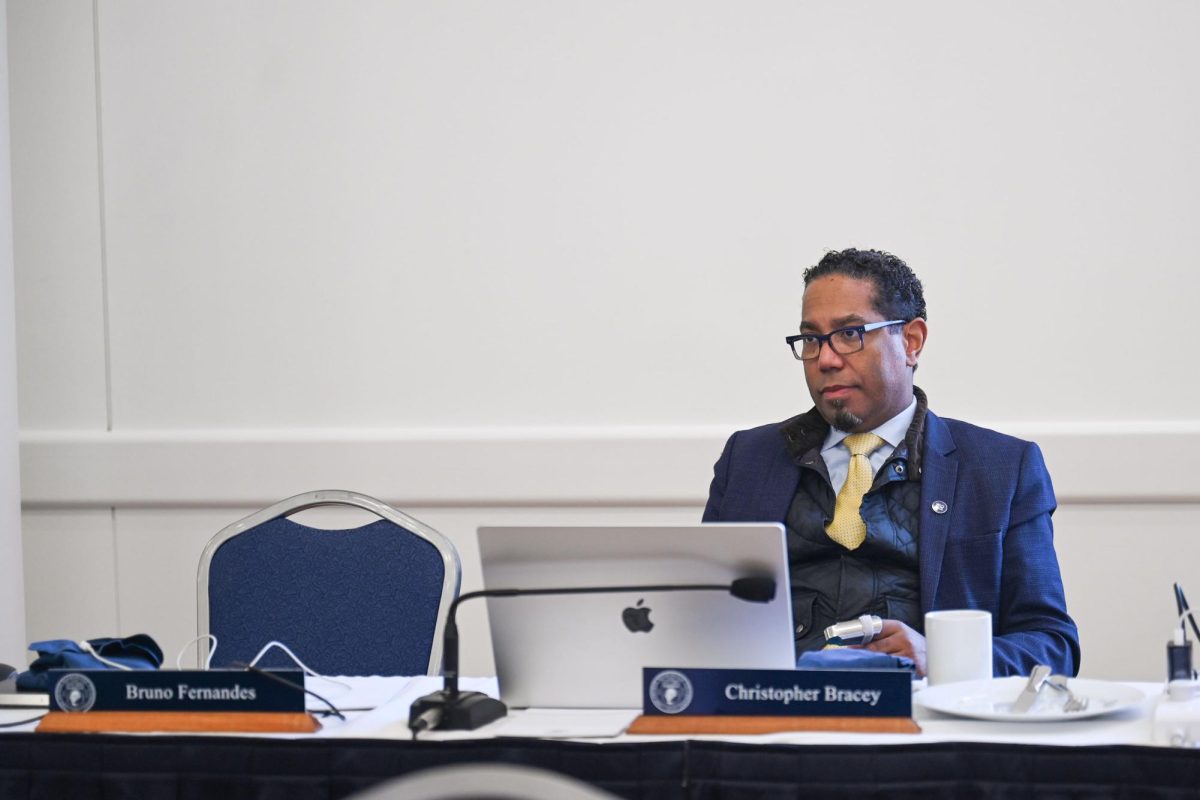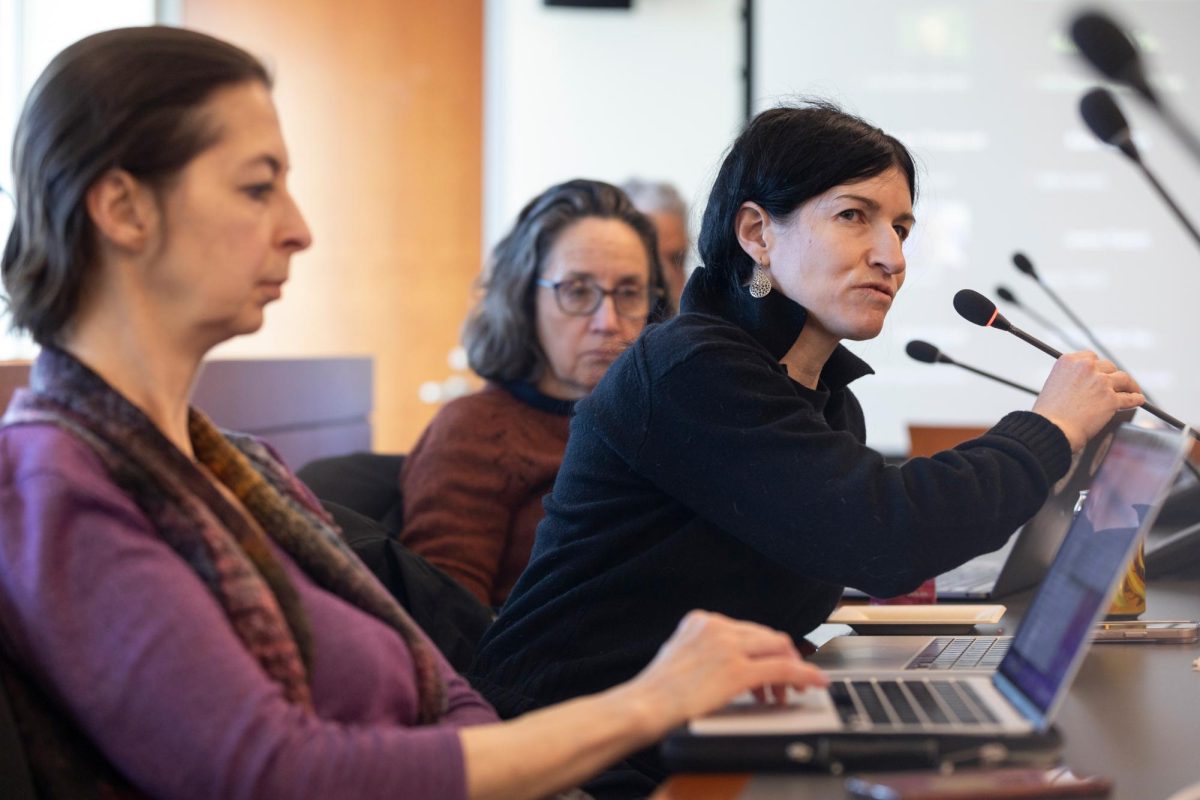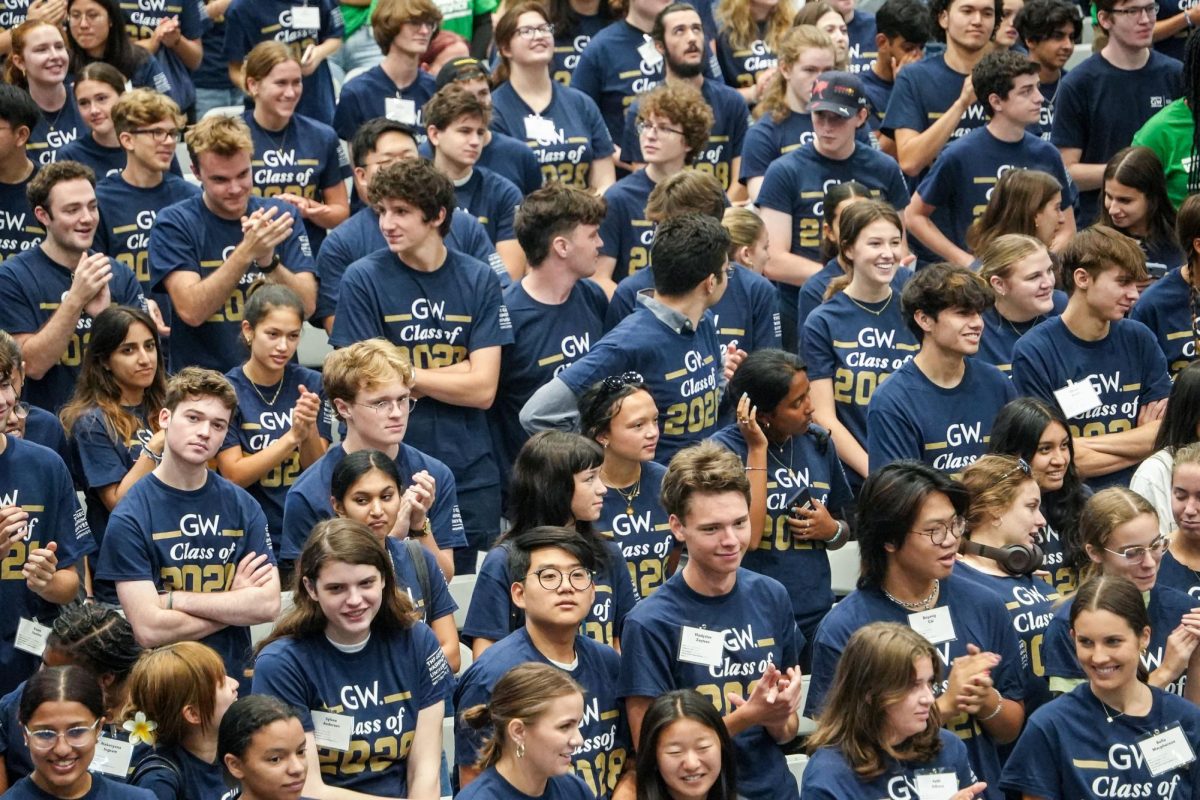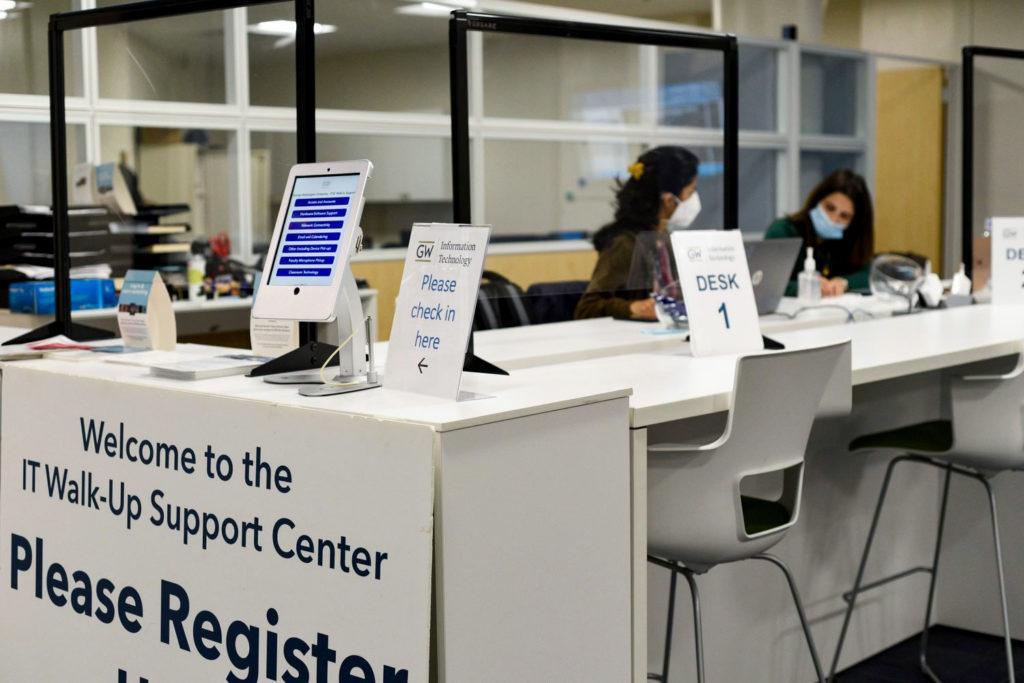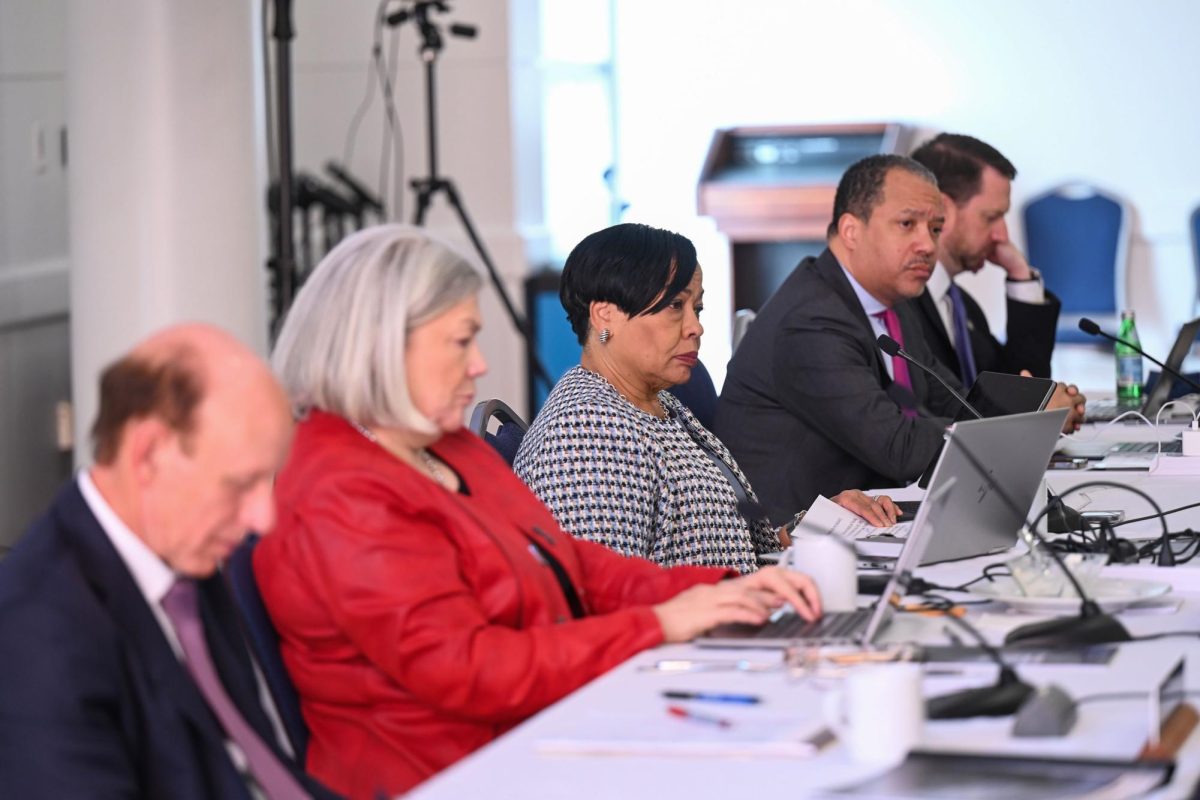Officials will add another step to the approval process for faculty and staff hiring and promotions on Monday to protect GW’s “limited” resources amid the impacts of the executive branch’s recent actions to federal funding.
Provost Christopher Bracey, CFO Bruno Fernandes and Chief of Staff Scott Mory said in an email Friday that GW is implementing a “position management review process” in which promotions and hiring require an extra “level of review” by University leadership before approval. The officials said the new process aims to ensure GW stays within its budget in response to the headwinds in higher education posed by President Donald Trump’s recent executive actions.
The officials said the review process would be in effect through fiscal year 2025 and could be extended.
“We want to be clear that GW’s financial position remains strong,” the email states. “However, our resources are more limited than other large research universities, and we must take steps now to anticipate difficulties that lie ahead in order to avoid significant disruptions to our community and the University’s stability.”
The announcement comes after the Trump administration’s federal funding actions, including threatening to freeze federal grants and loans at universities with diversity, equity and inclusion programs and cutting back administrative funding in the National Institutes of Health. A federal judge temporarily blocked Trump’s bid to halt federal funding for DEI programs and initiatives Friday.
GW has a $2.7 billion endowment as of Dec. 31, 2024. More than 80 percent of research funding at GW came from federal sources in FY2024, with the University’s federal research expenditures having risen from about $161.87 million in FY2022 to about $162.89 million in FY2023, according to the annual research report presented in January.
Bracey, Fernandes and Mory said the new review process is not a hiring freeze and that they will continue to hire faculty and staff that are “critical” to advancing the University. The officials said they plan to share more details about the review process with administrative and academic leadership involved in hiring.
“We recognize that this measure, and others we may be forced to take in the future, will require the cooperation and flexibility of all our colleagues,” the email states. “But this particular review allows us to make informed, strategic decisions that consider the impact and funding source of each position request.”
The Office of Faculty Personnel is currently responsible for monitoring faculty recruitment, according to the University’s Faculty Affairs website. The website currently includes four sections under the recruitment webpage including a “Reviewing and Selection” tab that requests applicable search committees submit a proposed list of finalists for vacant positions to the department chair or administrator for review and approval.
The search committee then holds an interview for selected candidates. In some cases, the dean must also approve the proposed list of finalists before the interviews, according to the website.
Following the selection of a candidate, the hiring department recommends an appointment to an appropriate administrator. Upon the administrator’s approval, the hiring unit submits evidence that the search activity complied with GW policies and procedures through the dean or director to faculty recruitment.
Faculty recruitment officials then work with the provost and executive vice president for academic affairs for final approval and presents a job offer to the candidate, according to the website.
The criteria for promotion and tenure stated in the Faculty Code, which the Board of Trustees last approved in May 2019, states that faculty interested in promotion or tenure must submit a dossier and set of recommendation letters to the provost’s office.
Boston University — one of GW’s peer schools and a member of the Association of American Universities alongside GW — has a $3 billion endowment. BU began requiring approval before hiring full, part-time and temporary employees earlier this month.
Other universities have implemented hiring freezes since January due to the Trump administration’s federal funding halt. The Massachusetts Institute of Technology, which was slated to lose $100 million or more in federal funding due to the National Institutes of Health proposed funding cuts, suspended nonfaculty hiring on Feb. 14. North Carolina State University implemented a total hiring freeze earlier this month and the University of Louisville ordered a hiring freeze late last month.


